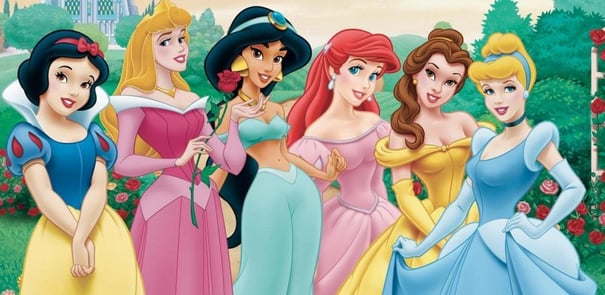Unless you have children or are a child yourself (or even a child at heart yourself), you probably haven’t thought about toys in quite some time, but some changes are afoot. One company in particular, Hasbro Toys, has proven adept at blurring the lines between physical toys and media empires by securing licensing deals with iconic film franchises and developing original content for their stable of perennial brands.
“Five years ago I would’ve told you that technology was hurting toys because kids were watching their iPads instead. Now I think it’s helping—even preschoolers are engaging with brands,” observed Juli Lennett of the NPD Group.
Just Call them “Disney Toys”
Through licensing agreements with Disney—owner of Star Wars, Marvel, and Disney Princess industries—Hasbro has already increased their sales 16% this year and it’s not even toy season yet. Last year, armed with an roster of Disney characters, the company pulled off the rare “triple play” by posting record revenue, operating profit, and earnings growth.
Their bonanza run started in in 2013 when they famously outflanked rival Mattel and secured the Disney Princess line, which consolidates Disney’s adored heroines under one brand. According to CNN, “the House of Mouse” has been nothing short of a smash—they even suggested Hasbro rename themselves “Disney Toys.”

For Hasbro, mega properties like Disney Princesses and Star Wars are a slam dunk—those babies sell themselves (though there was that one hiccup). Last year, Star Wars toy sales came in at $700 million; this year it is already at $300 million, which is staggering when one considers 2/3 of toy sales occur in the second half of the year, and a new Star Wars movie, Rouge One, will come out this December. That’s the beauty of Star Wars—there will always be another film, and another set of toys, around the corner.
Transforming the Transformers
But in addition to Disney licensed properties, Hasbro also makes Nerf and Play-Doh; games such as Monopoly and Twister; and My Little Pony, Transformers, Ninja Turtle, and GI Joe figures. Parents are loyal to many of these brands, which are stable nostalgic items they buy for, and play with, their kids.
But the latter grouping of beloved 1980s Saturday-morning cartoon characters started to prove problematic for Hasbro. Its devotees were aging out of the market and younger generations lacked attachment to the characters. “Kids respond to characters and stories,” noted Hasbro’s brand manager, and with no exposure to them in their daily lives, sales dipped.
Thus, when market research showed that children loved actually playing with Transformers when they were handy, but lacked the familiarity to seek them out and drive sales, the company coproduced a 2007, Michael Bay-directed eponymous blockbuster. It made over $700 million worldwide and immediately revitalized the line. Subsequent sequels (number 7 will come out in 2019) bring their own sales spikes, introducing new characters, settings, and themes for the toy brand to develop.
You Sunk My Battleship, But That’s Ok
Following that model, Hasbro developed its own production studio and has continued to coproduce films based on their aging properties, with GI Joe, Teenage Mutant Ninja Turtles, and Jem movies all being released over the last five years. And this says nothing of their animation studio that produces original children’s cartoons for streaming and broadcast. Seriously, just check out their IMDB page. With media deepening—and becoming essential to—relationships between children and Hasbro, the company now prefers to refer to their business as “creating play experiences.”
Of course, not every story has a happy ending—as they learned with the disastrous Battleship movie—but box office failures can be mitigated by the fact that they essentially double dip successes, profiting from both box office receipts and subsequent toy sales. Yes, that also means they are doubly on the hook for flops, but when your successes include the most popular characters in the world, you can stand to take a couple on the chin.
They can also withstand losing a licensed property or two, as they just recently did when the Jurassic Park/World line jumped ship. Their stock fell upon news of the loss, but with forthcoming entries not just in Star Wars but also Disney’s insanely popular Frozen film, Dreamworks new potential smash Trolls, and another Ninja Turtles movie, they remain, according to one market analyst, “the premiere toy company.”
With their hands in so many cartoon and franchise film pies, they may be on their way to becoming a premiere media company as well.


